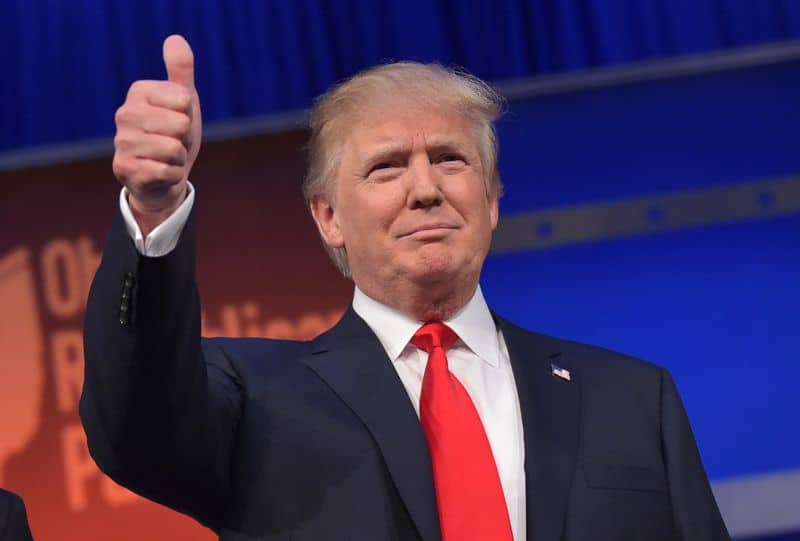Washington: For Donald Trump, America’s “worst enemies” are sometimes “our so-called friends.”
The coming week will give the American president a chance to elaborate on that surprising diplomatic doctrine, but only at the risk of further fueling tensions with the country’s already deeply unsettled allies.
Trump’s Brussels-London-Helsinki itinerary — with a NATO summit followed by what looks like a stormy visit to Britain and then a tete-a-tete with Russian president Vladimir Putin — would seem to carry spectacular risks.
High in people’s minds is the head-spinning way in which Trump went in a few days from dismissing the G7 summit host, Canadian prime minister Justin Trudeau, as “dishonest and weak” to warmly praising North Korean dictator Kim Jong Un as “very talented” following their Singapore summit.
Many observers fear seeing a summertime rerun of that sequence. As one European diplomat summed it up: “He chews out the allies then embraces the adversary.”
Just how far will the unpredictable president go? The question has people on both sides of the Atlantic holding their breath.
– The ‘schmucks’ who pay –
Will Trump — who uses the tool of provocation to galvanize his base while seemingly pushing his “America First” formula to its extremes — profoundly transform the Atlantic alliance, the cornerstone of international relations for more than a half-century?
If one believes some of his advisers, the Brussels summit should proceed along traditional lines, harmoniously and without a hitch.
“The major overall theme of this summit is going to be NATO’s strength and unity,” said Kay Bailey Hutchison, the US ambassador to NATO. She insisted on the solidarity of the 29-member alliance and denounced the “malign activities” of Russia and its attempts to “divide our democratic nation.”
But for months former real estate magnate Trump, eager to distance himself from both the Democratic and Republican politicians who preceded him, has been preaching a very different message.
This week, before a wildly cheering crowd in the western state of Montana, Trump launched into one of his most pointed tirades against NATO members who “have to start paying (their) bills.”
The US, Trump stressed, was no longer going to be “the schmucks paying for the whole thing.”
He did not spare German leader Angela Merkel, whom he referred to by her first name.
But when he turned to Putin, Trump uttered not the slightest criticism — not about Ukraine, not about Syria — instead repeating over and over his hopes for “getting along with Russia” and its leader.
The US president’s aides are regularly forced into awkward contortions as they try to explain, for example, his Twitter message accepting Putin’s denial that Russia interfered in the 2016 US elections, even after American intelligence agencies said that meddling was a proven fact.
On the most sensitive of diplomatic dossiers, Trump seems to delight in ambiguity. Asked a few days ago whether the US might eventually recognize Moscow’s annexation of Crimea, he offered a laconic, “We’re going to have to see.”
That noncommittal answer to such an explosive question left White House officials scurrying to clarify that “we do not recognize Russia’s attempt to annex Crimea,” as White House spokeswoman Sarah Sanders said later.
– Hostile to the EU –
Trump’s hostility to the European Union, long evident yet only vaguely expressed, is now open, clear and unapologetic. In a rally in the state of North Dakota, he asserted — against all evidence — that “the European Union, of course, was set up to take advantage of the United States.”
His verbal assaults on long-time allies, led by Germany, have grown as he pursues aggressive trade tactics with no clear outcome.
“I don’t blame the Europeans for being worried” about Trump’s meeting with Putin in Helsinki, William Galston of the Brookings Institution in Washington told AFP.
“Could I imagine some declaration coming out of Helsinki with items that haven’t been discussed with the European allies at the NATO summit?” he asked. “Sure.”
“In general, the president is more comfortable dealing with autocrats than democrats,” Galston said, adding that Trump does not hold multilateral institutions “in high regard.”
A year ago, at his first NATO summit, Trump presented himself as a resolute defender of the American taxpayer, lecturing allies who he said owed “massive amounts of money” because they were failing to meet their NATO spending commitments.
But he abstained from raising the most fundamental questions about the utility of the Western military alliance or the future of the EU.
A year later, much has changed.
Buoyed by positive economic indicators, determined to carry through with his promises to disrupt Washington’s old ways, and having pushed aside those on his team who seemed best able to stand up to him, he has grown bolder.
The stakes are high for the six days between Trump’s arrival in Brussels Tuesday night and his departure from Helsinki.
He could, in that short time, remake some of the US’s most significant relationships with the rest of the world.
Agence France-Presse

